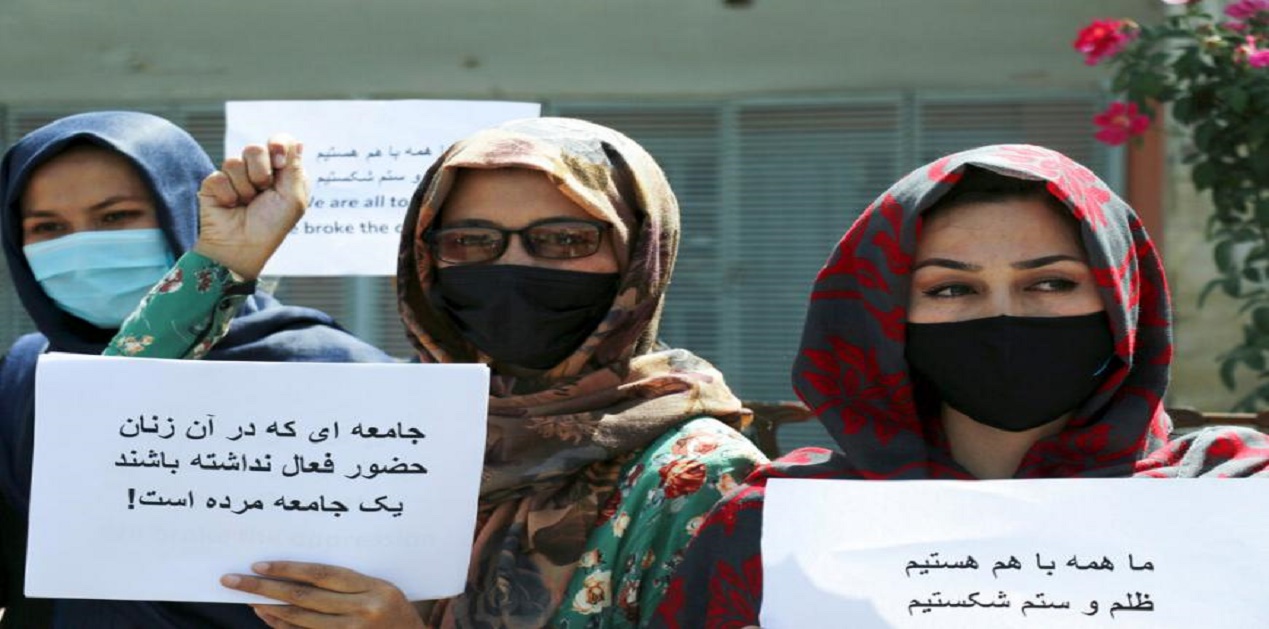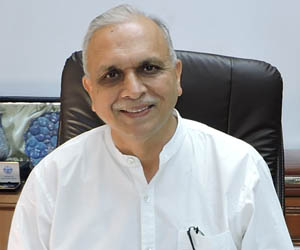The recent developments in Afghanistan do not augur well for global or regional stability. The region has become highly unstable with the return of the Taliban. The likelihood of terrorism and radicalisation emanating from Afghanistan engulfing the rest of the world has increased several folds. The regional power vacuum created by the withdrawal of the US from Afghanistan is likely to create further turbulence in the region.
The Taliban regime that has wrested power is not legitimate. There has been no power-sharing agreement; the interim cabinet they announced is not inclusive; a large number of its members are on the UN global list of terrorists. Many of them have bounties on their head. The Taliban’s worldview, rooted in medieval ideologies, directly challenges the current world order.
The jihadi terror landscape has come alive after the Taliban take over. The attack on Kabul airport by Islamic State-Khorasan is a trailer of what may be expected. Ironically, the very forces who fought the Taliban for twenty years and spent treasure and blood, have brought them back to power and now face the threat from resurgent jihadism.
UNSCR, BRICS
The UN Security Council Resolution (UNSCR)No. 2593 of 30 August 2021 flagged some but not all the concerns emanating from the dangerous situation in Afghanistan. It talked about the attack by the Islamic State-Khorasan on Kabul airport; underscored the importance of combating terrorism in Afghanistan; and highlighted the need to provide humanitarian assistance to Afghanistan and major Afghan refugee-hosting countries. It emphasised the importance of upholding human rights including those of women, children and minorities and encouraged all parties to seek an inclusive, negotiated political settlement. But it did not mention drugs and was silent on external interference into Afghanistan’s affairs. Moreover, it did not have an operative para. What happens if the Taliban do not live to the assurances they have given? China and Russia abstained from the resolution reflecting schism in the international community on how to regard the Taliban takeover.
A lengthy statement was issued by the leaders of the BRICS (Brazil, Russia, India, China and South Africa) countries on 9 Sep 2021. On Afghanistan, the leaders expressed their concern and called for the settlement of the situation by peaceful means. They stressed the need for an inclusive intra-Afghan dialogue to ensure stability, civil peace, law and order in the country. The statement underscored the priority of ‘fighting terrorism, including preventing attempts by terrorist organisations to use Afghan territory for carrying out attacks against other countries. They emphasised the need to address the humanitarian situation and to uphold human rights, including those of women, children and minorities.
While there are some similarities between the UNSC resolution and the BRICS statement, there are notable differences too. The BRICS statement omitted a mention of UNSCR 2593. It did not mention ISIS-K by name and did not refer to the Taliban by name. It mentioned drugs, which was not there in UNSCR but did not mention UN efforts to provide humanitarian assistance.
The point to note is that both formulations are incomplete. They do not mention that the Taliban regime is illegitimate. The fact is that the Taliban takeover is nothing short of a coup. Neither do the statements take into account Pakistan’s role in supporting the Taliban.
Ironically, the international community continues to hope that the Taliban may have changed. This is an unrealistic assumption. The Taliban have not changed but they have become more media savvy. They make statements to please the gullible but have not done anything to indicate that there has been a change of heart. In the last few days, disturbing visuals of Taliban atrocities against women, journalists and protestors have surfaced. The international community has refused to unequivocally condemn such acts of barbarity.
Illegitimacy of the Taliban regime
There seems to be a rush to engage with the Taliban even as they continue with their atrocities. Instead of sending unambiguous messages of condemnation to the Taliban, we are witnessing a spate of high-level visits from some western countries to Doha and Islamabad. These acts promote legitimising illegal government. The international community should be worried that Afghanistan has many terrorist groups on its soil. Al Qaeda is alive and kicking. ISIS-K has bared its teeth.
The question is why should these terror groups be normalised? The tearing hurry to engage with the Taliban will be a big mistake. Legitimising such a government will be an error.
The terror groups are interconnected and enjoy the vital patronage of Pakistan’s ISI. It is not hidden from anyone how the Taliban were created and nurtured. Who provided them sanctuaries? Who hid Osama Bin Laden? There have been anti-Pakistan rallies in Kabul. That tells its own story.
It is baffling that there is still a reluctance to acknowledge the highly negative role of Pakistan in bringing out the current situation. Lauding the Taliban takeover, Pakistan's Prime Minister has described the event as Afghans breaking from the ‘shackles of slavery’. The global jihad terror landscape is agog with the narrative of Islam’s ‘victory’ over the west. This is a highly dangerous narrative that will fuel global terrorism.
The international community must not be in a hurry to accord recognition to the Taliban regime. In the nineties, only three countries had recognised them. Not recognising them would be the correct approach. The UN sanctions against the Taliban shall not be lifted. Afghanistan’s UN seat should not be allocated to the Taliban. The most that can be done is to provide humanitarian assistance as provided for in the UNSCR 2593. UN will play a major role in this.
The Changing Power Equations
The withdrawal of the NATO and western forces from the region after twenty years will inevitably lead to new realignments. Russia, China, Pakistan, Turkey, Qatar, Iran, India will readjust their positions. This is at a time China is trying to rewrite the global rules.
Most Afghans feel that they have been betrayed and abandoned by the US. This has raised doubts about the reliability of the US as a credible partner. The US will have to work hard to restore its credibility.
Russia is back in the game with a bang. But it is vulnerable to terrorism and drug menace from Afghanistan. It has held a series of high profile military exercises with Tajikistan, Kyrgyzstan, Uzbekistan and Kazakstan to strengthen counter-terrorism capabilities.
The Taliban are looking towards China as an economic and developmental partner. The BRI may be extended to Afghanistan and linked to the CPEC. But China will need to get cast-iron guarantees from the Taliban that the Eastern Turkistan Islamic Movement (ETIM) is not allowed to operate from its soil. The Taliban have assured China but it is not clear whether that assurance will be implemented.
Iran is happy that the US is out of the region but it is worried that instability in Afghanistan may spillover to Iran. It is also concerned over the growing role of Pakistan in Afghanistan.
Pakistan has gained massive strategic depth in Afghanistan. It paints the picture as a defeat of India. It has played a role in ensuring that the dreaded Haqqani network gets prominent positions in the interimgovernment. But it has reasons to be concerned about the revival of the Tehrike-Taliban-Pakstan (TTP) which has already carried out a suicide attack near the Pak Afghan border. Also, many believe that the Taliban will not remain a pliant puppet in the hands of Pakistan and will eventually break free.
In its history, Pakistan has encashed its strategic location. It was the frontline state in the US’s proxy war against the USSR in the eighties. In the last twenty years, the US overlooked Pakistan's support to terrorist groups and continued to rely on it to fight its war in Afghanistan. Once again, Pakistan is trying to lobby the international community that it is indispensable when it comes to dealing with the Taliban.
India is naturally concerned about the growing influence of Pakistan in Afghanistan, the resuscitation of global terrorism and the new realignments in the region. Its foreign policy may undergo subtle shifts in favour of greater engagement with Russia and Iran.
There is no guarantee that the Taliban government will be able to govern. Afghanistan may turn into a failed state. The situation is fluid. As they say in Hindi, picture abhi baki hai – the movie continues.
(The paper is the author’s individual scholastic articulation. The author certifies that the article/paper is original in content, unpublished and it has not been submitted for publication/web upload elsewhere, and that the facts and figures quoted are duly referenced, as needed, and are believed to be correct). (The paper does not necessarily represent the organisational stance... More >>
Image Source: https://www.hrw.org/sites/default/files/styles/embed_medium/public/media_2021/09/202109afghanistan_women_protest_rights.jpg?itok=KE9QGxUw











Post new comment